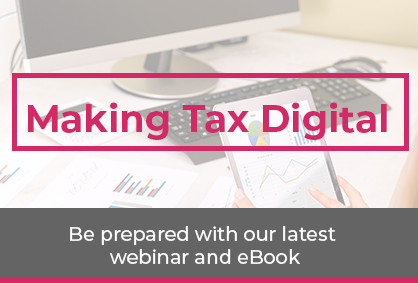BLOG
Setting up a new business? Claim a deduction for pre-trading expenses
 As a general rule, a deduction is allowed for expenses that are incurred wholly and exclusively for the purpose of the trade. Thus, for the deduction to be available, the business must have started trading. However, most businesses will incur expenses in setting up the business. These may include rents and other premises costs, marketing and advertising costs, the purchase of office supplies and stationery, and such like. These costs will be incurred before the business starts to trade rather than when the business is trading; they are incurred to put the business in position to trade, rather than for the purposes of the trade.
As a general rule, a deduction is allowed for expenses that are incurred wholly and exclusively for the purpose of the trade. Thus, for the deduction to be available, the business must have started trading. However, most businesses will incur expenses in setting up the business. These may include rents and other premises costs, marketing and advertising costs, the purchase of office supplies and stationery, and such like. These costs will be incurred before the business starts to trade rather than when the business is trading; they are incurred to put the business in position to trade, rather than for the purposes of the trade.
Luckily, help is at hand and the tax legislation specifically allows relief for pre-trading expenses, as long as certain conditions are met. Relief is available for both income tax and corporation tax purposes, providing a deduction regardless of whether the trader operates as a sole trader or via a limited company.
The relief is available for:
- expenditure which is incurred within a period of seven years prior to the commencement of the trade, profession or vocation; and
- which is not allowable as a deduction, but which would have been allowable had the expenditure been incurred after the trade had commenced.
Applying the ‘wholly and exclusively’ rule
The ‘wholly and exclusively’ rule applies equally to determine whether expenses which are incurred prior to the commencement of trade are deductible under the pre-trading expenses rule, as it does to determine the deductibility of expenses incurred while trading. Only those pre-trading expenses which are incurred wholly and exclusively for the purposes of the trade can be deducted under the pre-trading expenses rules.
How is relief given?
Relief is given by treating the qualifying expenses incurred in the seven years prior to the commencement of the trade as if they were incurred on the first day of trading. Consequently, they are deductible in computing the profits of the first accounting period.
Trap
The purchase of trading stock is not deductible as a pre-trading expense; it is deductible in computing profits once the trade as commenced.
Capital v revenue
Where the accruals basis is used, relief is only given for pre-trading expenses if they are revenue in nature, as is the case where the expenses are incurred once the trade as commenced. If the trader has opted to use the cash basis, capital expenses may also be deducted where these would be deductible under the cash basis rules.
Example
Dave starts trading as sports therapist on 1 November 2018. He spends six months setting up the business, acquiring premises and preparing to trade. He incurs £2,000 on rent, and £800 on marketing the business. The expenses are treated as incurred on 1 November 2018 and are deducted in computing the profits of his first accounting period.
Inform are here to help you so please contact us if you need further information on this or any other tax related matters.
Read more of Inform's tax blogs: Autumn budget gives 2.4 million workers a payriseChancellor's Autumn Budget Announcement 2018Cash basis for landlords- when does it apply?




.jpg?width=1500&height=1000&name=amy-hirschi-K0c8ko3e6AA-unsplash-(5).jpg)

